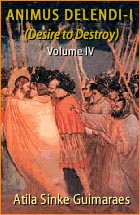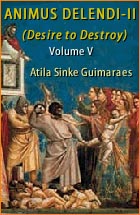NEWS: April 30, 2018
 |
 |
 |
 |
 |
 |
 |
Bird’s Eye View of the News
X-RAY OF SCHÖNBORN’S INTERVIEW –
On March 30, 2018, Card. Christoph von Schönborn gave an interview to a group of Austrian journalists that was published on April 1 in Austria by
Die Presse and
Salzburger Nachrichter. It was translated to English and commented upon in several media outlets during the first week of April. Here I am re-examining the cardinal’s statements and adding some observations that I did not find in those articles.
/Bev218_Schon.jpg) Asked about the development of the women’s role in the Church, Schönborn affirmed that the Church needs “a higher percentage of women in senior positions.” Then, he added, “the question of ordination [of women] is a question that clearly can only be clarified by a council. A Pope alone cannot decide on that. This is a too big a question to be decided from the desk of a Pope.”
Asked about the development of the women’s role in the Church, Schönborn affirmed that the Church needs “a higher percentage of women in senior positions.” Then, he added, “the question of ordination [of women] is a question that clearly can only be clarified by a council. A Pope alone cannot decide on that. This is a too big a question to be decided from the desk of a Pope.”
In another answer, he said: “The Church is a community, big decisions should be made together.” He also added: “I hope that we continue along the path of synodality of the Church (to make decisions after deliberations of the Bishops), which the Pope strongly encourages. I trust that there will be a next council - whenever it comes.”
The progressivist presupposition that the Pope cannot make decisions by himself is positively wrong. It adopts the doctrine that, in Church decisions, the council has more authority than the Pope, which is the heresy of Conciliarism, condemned several times by the Catholic Church.
So, to impose a bad change in the institution of the Church – the introduction of women priests – in order to make the Church similar to some Protestant sects, the Cardinal of Vienna revealed himself to be a partisan of another heresy promoted by Progressivism: that a decision of the Pope relies on an assembly of Bishops and the people they represent.
Condemnations of Conciliarism
Following is a non-exhaustive list of how the Church treated in the past those who adopted Card. Schönborn’s doctrine./Bev218_Sixtus.jpg)
Later in his interview, Card. Schönborn mentioned a “tradition that is the development of doctrine.” Here are his words:
“There is a traditional Catholic principle that is the development of doctrine. We are currently experiencing a very exciting step in the development of doctrine. Pope Francis clearly stated this on the occasion of the 25th anniversary of the Catechism of the Catholic Church: The development of doctrine exists. The death penalty, which in the 1992 Catechism is still considered admissible in special situations, is clearly to be condemned today. I am a witness (Schönborn was editorial secretary of the Catechism): John Paul had already wanted a clear condemnation of the death penalty. The time was not ripe then. Now, the time has come. There is a development of doctrine on different levels.”
What the Cardinal of Vienna did not explain is that this is a “tradition” of Modernism, which was taken up by Progressivism. Here is the list of Schönborn’s precursors:
/Bev218_Loisy.jpg)
I hope that these observations, which I did not find addressed in other articles, may help readers to evaluate the real dimension of those declarations, which is enormous.

/Bev218_Schon.jpg)
Card. Schonborn during the interview at his office, under the shadow of a menorah
In another answer, he said: “The Church is a community, big decisions should be made together.” He also added: “I hope that we continue along the path of synodality of the Church (to make decisions after deliberations of the Bishops), which the Pope strongly encourages. I trust that there will be a next council - whenever it comes.”
The progressivist presupposition that the Pope cannot make decisions by himself is positively wrong. It adopts the doctrine that, in Church decisions, the council has more authority than the Pope, which is the heresy of Conciliarism, condemned several times by the Catholic Church.
So, to impose a bad change in the institution of the Church – the introduction of women priests – in order to make the Church similar to some Protestant sects, the Cardinal of Vienna revealed himself to be a partisan of another heresy promoted by Progressivism: that a decision of the Pope relies on an assembly of Bishops and the people they represent.
Condemnations of Conciliarism
Following is a non-exhaustive list of how the Church treated in the past those who adopted Card. Schönborn’s doctrine.
/Bev218_Sixtus.jpg)
Pope Sixtus IV declared null the conciliarist decrees of the Council of Constance
- In its fifth session of April 6, 1415, the Council of Constance erroneously promulgated two decrees against the supremacy of the Supreme Pontiff over the Council. These decrees were not approved by Pope Martin V, nor did the conciliar Fathers intend to give them dogmatic standing, as observed by St. Robert Bellarmine in De conciliorum auctoritate (lib.2, chap.19) and Melchior Cano in De locis theologicis (lib.5, chap.6, apud A. Baudrillart, entry Concile de Constance, in Dictionnaire de Théologie Catholique, vol. 3, col. 1221). Later on, Pope Sixtus IV declared null the decrees of the Council of Constance regarding that Martin V had already denied approval (A. Teetaert, entry Sixte IV in Dictionnaire de Théologie Catholique, vol. 14, col. 2208).
- Pope Eugene IV condemned the doctrine of the Fathers of Basel, who renewed those errors of the Council of Constance. In a letter to the Catholic Princes in 1436, the Pontiff denounced:
“They claimed that general Councils do not draw their strength and power from the Roman Church after such Councils are convened by the apostolic authority, as all Catholic Doctors profess and teach. For this reason, they deny that the general Councils receive their authority and foundation from the Vicar of Christ, something that none of the faithful or Church Doctors has ever dared to affirm.
“Hence they also expressly and foremost infer the statement that the Roman Pontiff, like any Prelate, is obliged to obey the decrees, ordinances and mandates of the Council and must subject himself to a deserved punishment should he do the contrary, something tantamount to totally annihilating the power of the Supreme Pontiff and Vicar of Christ on earth, and placing into the hands of the multitudes the supreme authority that Christ gave to him, which is not only erroneous but entirely foreign to the whole doctrine of the Holy Fathers” (Raynaldi, an. 1436, vol. 28, n. 3, apud A. Baudrillart, Concile de Constance, Dictionnaire de Théologie Catholique, vol. 3, col. 1127). - In the Constitution Moyses, vir Dei, promulgated by Pope Eugene IV in union with the Council of Florence on September 4, 1439, the Pope spoke severely about the Fathers of Basel, and ordered the faithful to “depart from the tents of these wicked men” [Num 16:26]. In that Constitution, he taught:
“They are most sinister in that they cover their wickedness with the semblance of true faith, by interpreting the Council of Constance in an evil and distorted sense, in a way totally foreign to any sound doctrine, in accordance with the false doctrine of schismatics and heretics, who have always striven to amass veiled errors and impious dogmas through a false understanding of Divine Scriptures and the Holy Fathers. …
“The propositions described above, according to the thinking of those at Basel, which the facts prove to be contrary to the meaning of Sacred Scriptures, the Holy Fathers and the Council of Constance itself, as well as the aforementioned statement declaring the proposed divestiture [that is, the virtual deposition of the Pope], with all that it entails and that may ensue from it immediately and in the future, we condemn and reject; and we hereby declare them, as condemned and reproved, and with the approval of the sacrosanct Council [of Florence] itself, to be impious and scandalous, as well as a manifest breach with the Church of God and conductive to confusion in the whole ecclesiastical order and the Christian principality. We also decree and declare each and every one of the aforementioned [cardinals, archbishops and bishops of the Council of Basel] as having been or being schismatics and heretics” (Raynaldi, an. 1439, n. 29, apud A. Baudrillart, ibid., cols. 127-128)./Bev218_Eugene.jpg)
- Pope Alexander VIII, in the Constitution Inter multiplices of August 4, 1690 (DS 2281-2285), and Pius VI in the Constitution Auctorem Fidei of August 28, 1794 (DS 2700), condemned as “rash,” “scandalous” and “injurious to the Apostolic See,” similar statements of the French Bishops gathered at the General Assembly of the Clergy in 1682 (cf. DS 2282, 2284).
Later in his interview, Card. Schönborn mentioned a “tradition that is the development of doctrine.” Here are his words:
“There is a traditional Catholic principle that is the development of doctrine. We are currently experiencing a very exciting step in the development of doctrine. Pope Francis clearly stated this on the occasion of the 25th anniversary of the Catechism of the Catholic Church: The development of doctrine exists. The death penalty, which in the 1992 Catechism is still considered admissible in special situations, is clearly to be condemned today. I am a witness (Schönborn was editorial secretary of the Catechism): John Paul had already wanted a clear condemnation of the death penalty. The time was not ripe then. Now, the time has come. There is a development of doctrine on different levels.”
What the Cardinal of Vienna did not explain is that this is a “tradition” of Modernism, which was taken up by Progressivism. Here is the list of Schönborn’s precursors:
/Bev218_Loisy.jpg)
Fr. Alfred Loisy, condemned as a modernist, is one of the precursors of Card. Schonborn
- Fr. Anton Günther, who defended similar ideas, was condemned in the Syllabus of Errors of Pope Pius IX (DB 1705); he also received an anathema of Council Vatican I (ses. III, chap. IV, can 3, De fide et ratione).
- Fr. Alfred Loisy and Fr. Édouard le Roy had their doctrines on the evolution of dogma condemned by Pope Pius X’s Decree Lamentabile (propositions 39-40, 42, 44, 46, 49-51, 53-54, 59, 62, 64-65) and by his Encyclical Pascendi (n. 13).
- The Anti-Modernist Oath clearly qualifies change in doctrine as heretical:
“I sincerely hold that the doctrine of Faith was handed down to us from the Apostles through the orthodox Fathers in exactly the same meaning and always according to the same thesis [eodem sensu eademque semper sententia]. Therefore, I completely reject the heretical misrepresentation of the evolution of dogmas, which would have dogma change from one meaning to another that is different from the one which the Church held previously (St. Pius X, Motu proprio Sacrorum Antistitum of September 1, 1910 – DR 2145).
I hope that these observations, which I did not find addressed in other articles, may help readers to evaluate the real dimension of those declarations, which is enormous.















